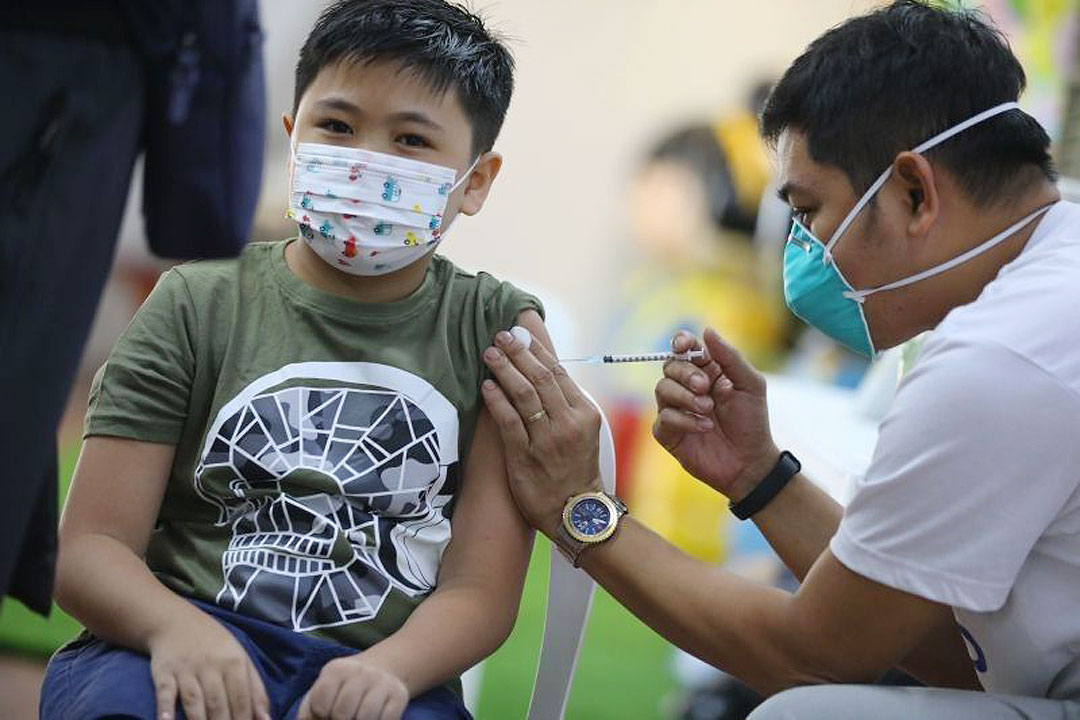OCTA warns of COVID-19 surge by May or June

By Revin Mikhael D. Ochave, Reporter
THE PHILIPPINES might experience another surge in coronavirus infections by May or June, similar to what other countries are experiencing now, according to an expert from the OCTA Research Group.
“The increase in new COVID-19 (coronavirus disease 2019) cases in South Africa, India and the US makes it likely that the Philippines will see an increase in cases soon,” OCTA fellow Fredegusto P. David told a virtual town hall meeting on Monday.
“How high and when, we don’t know yet. The rise in cases may happen maybe May or June,” he added.
The Philippines on Monday started giving out second booster shots against the coronavirus to seriously ill people.
Among those eligible for the shots are people with weak immune systems, those living with HIV, cancer, transplant and bedridden patients, and the terminally ill, the Department of Health (DoH) said in a statement.
Only 12.9 million of 67.2 million fully vaccinated Filipinos have received booster shots, said Teodoro J. Herbosa, an adviser at the National Task Force Against COVID-19.
He also said a COVID-19 outbreak could happen among unvaccinated Filipinos.
“If we ever do get an outbreak, it will be in areas where vaccination rates are below 50%,” Mr. Herbosa said.
OCTA President Ranjit S. Rye, citing a poll they conducted on March 5 to 10, said 77% of Filipinos were willing to get their booster shots, while 23% were unsure.
He added that 53% of those who were unsure said they were having second thoughts about the safety of the booster shots, while 35% thought these are not needed.
OCTA Research interviewed 1,200 adults face-to-face for the nationwide poll.
Only certain areas in the capital region were ready to roll out the second booster shots, DoH said.
Members of the vulnerable sector should get a vaccine brand that is different from their earlier shots for more protection, according to Nina Gloriani, who heads the government’s vaccine expert panel.
The second booster vaccine should be injected three months after the first, the Health department said earlier.
Rontgene M. Solante, a member of the government’s vaccine expert panel, told the town hall meeting that economic frontliners should get their first booster shots to ensure that economic recovery was not derailed.
“Get your first booster because we cannot proceed with the second booster until such time that they get the first booster, especially the general population,” he said.
The first booster shots would protect one from infection and lessen the chance of transmission, Mr. Solante said.
“If COVID-19 cases go up, we might be placed under a lockdown again and our economy will be derailed again,” he added.
He said vaccine hesitancy among Filipinos must be addressed. They should also be encouraged to take booster shots.
Based on DoH guidelines, economic frontliners include private sector workers required to physically report for work, employees in government agencies and informal sector workers and self-employed people who work outside. They also include people who work in private households.
At the same meeting, presidential adviser for entrepreneurship Jose Ma. A. Concepcion III said Filipinos should take their booster shots to prevent lockdowns, which would stall the recovery momentum of businesses.
“We don’t want to go back to Alert Level 3,” he said. “That would really destroy the renewed enthusiasm of entrepreneurs as they see their lives and businesses coming back. You don’t want to break that momentum.”
The private sector is working on how to entice more Filipinos to get their COVID-19 booster shots, he separately said via mobile phone.
“It is challenging with the current environment. But we are working on it,” he added.
He also said private companies are conducting information drives to inform people that COVID-19 vaccines are safe.
“The possibility of a COVID-19 surge happening soon that was predicted by experts, if that comes in, then I think Filipinos might be encouraged to get booster shots,” he said. “People are complacent. Nobody is scared.”
The Philippines recorded 1,465 new coronavirus infections from April 18 to 24, 12% lower than a week earlier, DoH said in a separate statement.
It also reported 213 more deaths, 43 of which occurred this month, 14 in March, 8 in February, and 13 in January.
The agency said 726 severe and critical coronavirus patients or 12.8% of total admissions were staying in hospitals.
It said 479 or 16.9% of 2,841 intensive care unit (ICU) beds had been used as of April 24, while 4,112 or 16.9% of 24,309 non-ICU beds were occupied. — with Kyle Aristophere T. Atienza



